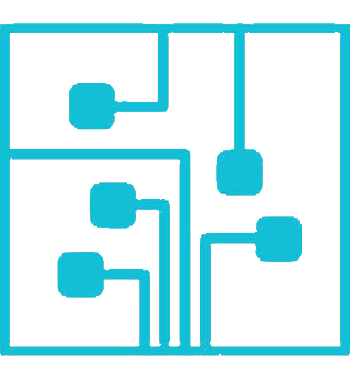Along with being lightweight, aluminum is corrosion-resistant, very versatile, has good mechanical properties, and is easily formed.
Many of the disadvantages known for this material can be easily averted when working with an experienced aluminum fabricator and metalworking shop. It takes commitment and specialized skills to work with the material for welding, tooling, and other operations.
(+/-) Very machinable, equally comparable to other materials
(-) Lowest tensile strength
(-) Lowest weldability
(-) Lowest ductility
(-) Not as cost-effective as other materials (except stainless steel)
The conductivity of aluminum makes it a suitable option for electronic manufacturing services since copper, though more conductive, is much heavier.
Aluminum is beginning to replace stainless steel in some energy sectors as its similar appearance and lightweight can outweigh the cost of the material.
Since aluminum is very machinable and formable it is also a common choice for industries like truckmounts and cleaning systems.

Isolator Components
Box Sheilds
Connector Plates
Connector Mounts
Pump Sensor Brackets
Antenna Mounting Brackets
Tank Shelves
Pump Brackets
Vacuum Drain Assemblies
5052-H3R Aluminum is a relatively universal grade of aluminum alloy used in heat exchangers, fuel lines and tanks, flooring panels, streetlights, appliances, and much more. The H32 designation of this aluminum means its strain hardened through low-temperature heating, giving it a stronger tensile strength, and increasing the weldability. It's worth noting this grade cannot be heat treated.
6061-T6 Aluminum is one of the most common grades used. By alloying this material with magnesium and silicon through precipitation hardening, it earns the T6 designation. The alloying results in a greatly increased yield strength of the material, which is why many refer to this grade as“structural aluminum”. This grade also has improved formability.